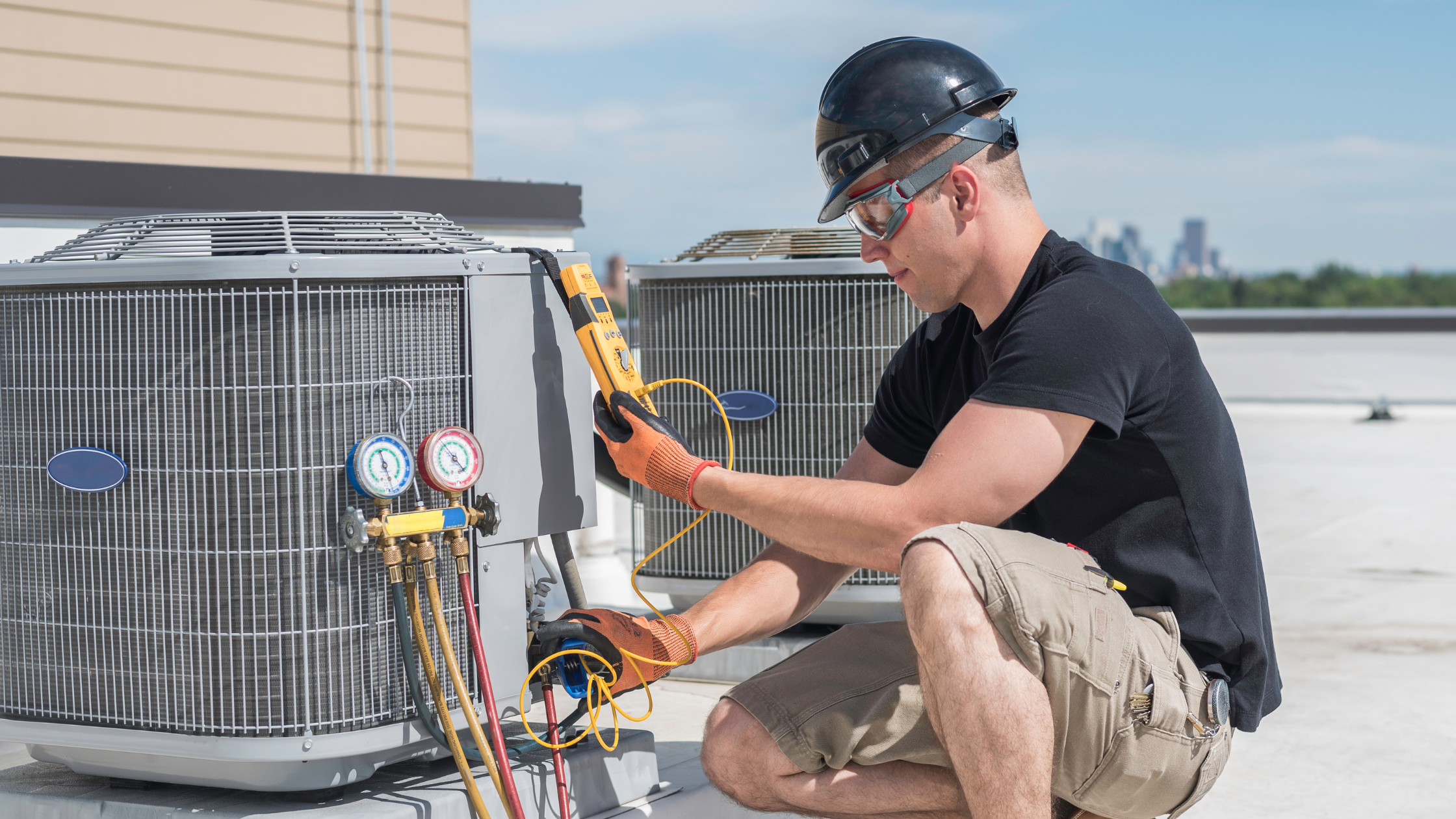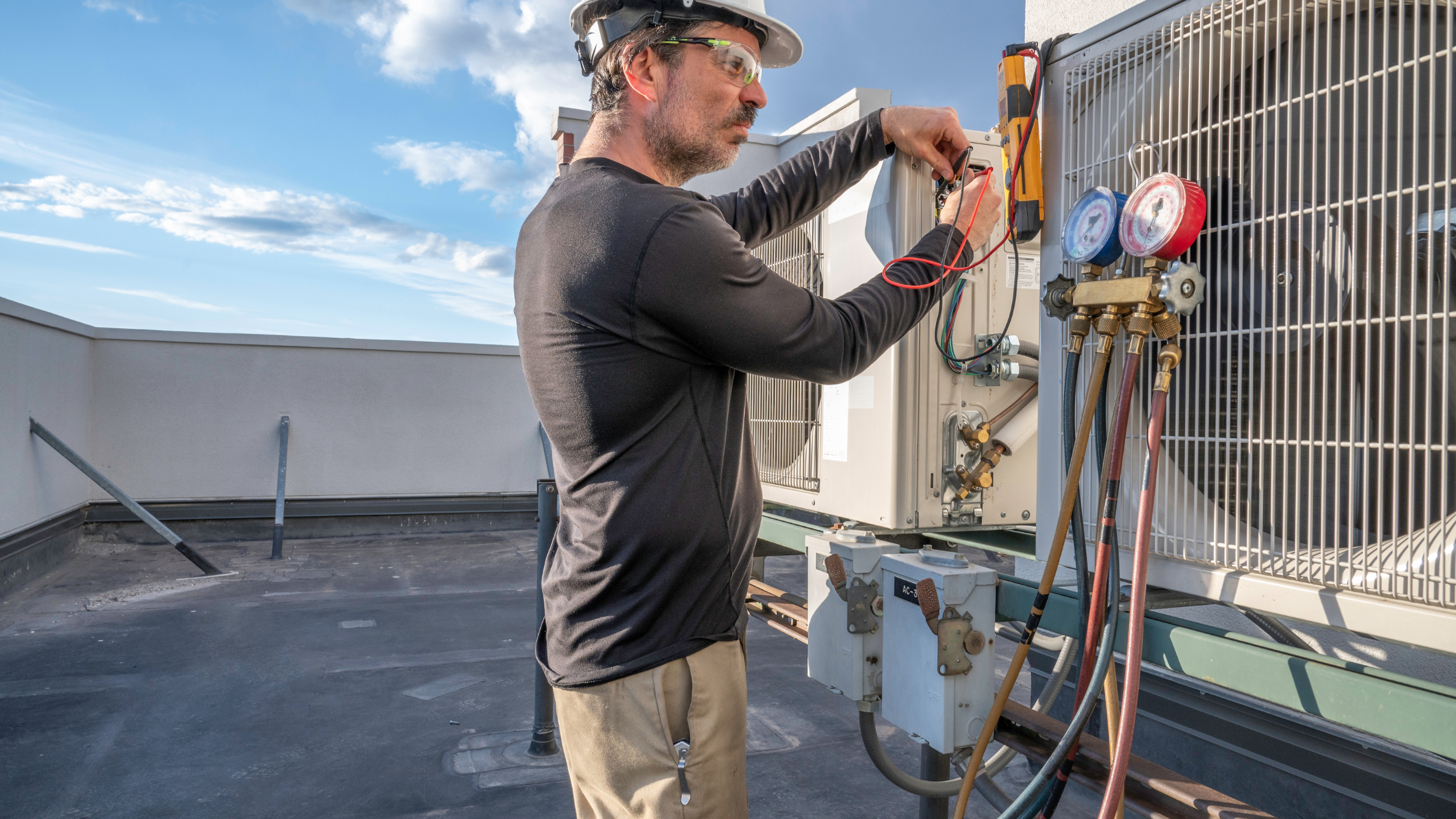HVAC/R Training Program in Macon, Georgia
Hands-On Learning
Be prepared for your work in the real world with hands-on learning.Certified in 12 Months
A career as a HVAC/R tech could be yours in just 12 months. Experience the Helms College difference.Career Training
Hands-on classroom and real-world training from passionate teachers.Job Placement
Helms College graduates have a 83% job placement rate in their field of study within 4 months of graduation.Request Free Information
We are here to help. Fill out the form and we will contact you to provide information about furthering your education.
The Helms College Difference
Helms College helps people discover and develop their gifts through education and career services.Career Training
Our program is specifically designed to equip students with everything they need to make the leap as a capable and confident HVAC/R tech.
What You Will Learn
The HVAC/R training program teaches technical skills in installation, maintenance, repair, and refrigeration, alongside administrative abilities like job costing, project management, and customer service.HVAC/R Certified
You will gain all the skills and experiences potential employers are looking for and be thoroughly prepared to pass the Georgia HVAC License Exam.
Potential HVAC/R Careers
What we doEmbark on a rewarding journey in the HVAC/R industry with our HVAC/R Training Program, meticulously crafted to provide you with hands-on, practical skills in this dynamic field. Our program seamlessly integrates theoretical knowledge with real-world technical training, ensuring that you're fully equipped to meet the demands of today's HVAC/R employers.
As you navigate through our comprehensive curriculum, you'll develop proficiency in essential HVAC/R procedures, system maintenance, and troubleshooting, making you a valuable asset in any HVAC/R setting.
Upon completing the program, you'll be primed to secure entry-level positions across various environments, from residential services to commercial and industrial facilities. This program doesn't just offer a job; it lays the groundwork for a meaningful and progressive career in HVAC/R, where opportunities for growth and specialization are plentiful.
Opting for our HVAC/R Training Program means you're not just pursuing a certification; you're stepping into a future where your skills significantly impact comfort, safety, and efficiency in everyday environments.

HVAC Technician
HVAC technicians work on heating, ventilation, air conditioning, and refrigeration systems, diagnosing and repairing issues while ensuring system efficiency and reliability. They perform regular maintenance, troubleshoot problems, and make necessary repairs to keep these systems operating optimally in residential or commercial settings.Refrigeration Technician
Refrigeration technicians specialize in the installation, maintenance, and repair of refrigeration systems, which include coolers, freezers, and other units that store and preserve food, medicine, and other perishable items. They ensure these systems are running efficiently, diagnose malfunctions, and perform repairs to maintain the integrity of the refrigerated goods.HVAC Installer
HVAC installers are responsible for the installation of new heating, ventilation, air conditioning, and refrigeration systems, including the assembly of components, ductwork, and electrical connections. They ensure that new installations meet industry standards, comply with codes, and satisfy customer requirements for comfort and efficiency.Indoor Air Quality Technician
Indoor air quality technicians assess and improve the air quality within buildings, identifying and mitigating sources of pollution or contaminants. They implement solutions such as ventilation improvements, filtration systems, and humidity control to ensure a healthy indoor environment for occupants.Refrigeration Repair Specialist
A refrigeration repair specialist focuses on troubleshooting and fixing issues within refrigeration systems, ensuring that they maintain the correct temperatures and operate efficiently. They work in various settings, from commercial kitchens to industrial refrigeration facilities, ensuring that these critical systems remain reliable and effective.Commercial Service Technician
Real People, Real Results
70%
Graduation Rate
83%
Job Placement
100%
Financial Assistance
To those that qualify.
Our Next Enrollment Session Begins:
Ready to Get Started?
Take the next steps in an exciting career as a HVAC/R professional.
Get in contact with one of our admissions representatives to learn about financial aid and resources, enrollment dates, and your next steps in starting at Helms College.
